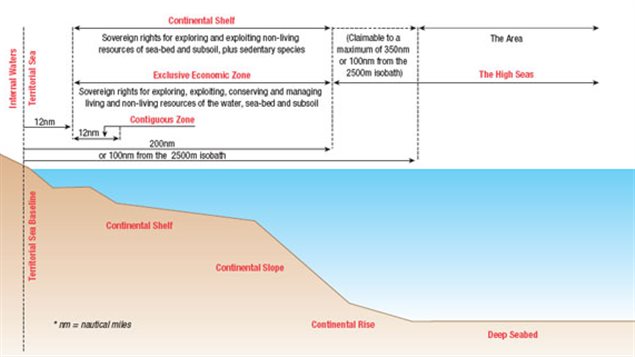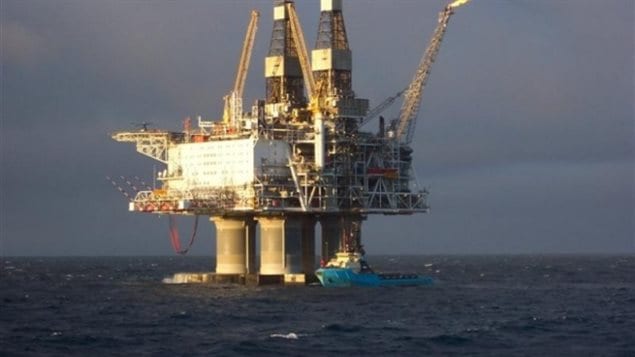A little-known clause in an international agreement could mean Canada would have to pay millions in royalties from offshore oil development.
It’s known as Article 82 of the United Nations Convention on the Law of the Sea (UNCLOS). It would require royalties to be paid to UNCLOS from oil and gas wells more than 200 nautical miles offshore but on a country’s continental shelf.
Even though officials are aware of the article, there is no provision in Canada to collect or pay the royalties to UNCLOS.
Wylie Spicer QC is with the law firm McInness-Cooper in Calgary and prepared a report for the University of Calgary School of Public Policy.
Listen
Canada is a major exporter of oil and gas which provide a considerable source of revenue for the country.
UNCLOS provides the legal framework for governance of the world’s oceans. And for coastal countries has defined a 200 nautical mile “Economic Exclusion Zone” (EEZ) from their shores.
However when the country’s continental shelf extends beyond the 200 nm limit, the provision requires that oil and gas production pay a financial or in-kind royalty to UNCLOS after five years of production. From that point the equivalent of one percent of the value of production must be paid, which increases to seven percent by the 12th year and remains at that rate until production ceases. UNCLOS would then distribute the money to signatory states based on equitable criteria and the needs of developing countries.
Canada has granted licences in areas well beyond the EEZ limit, and as such may be the first country required to pay the royalty.
Statoil and Husky Energy recently found a substantial reserve in this zone off the coast of Newfoundland.
However, while royalty payment schedules are defined in terms of the domestic situation, no provision for payments in respect of Article 82 have been worked on.
Complicating the situation is the international nature of the obligation, and the conflict between federal and provincial jurisdictions. Oil companies may also argue they don’t receive the same services from the government as platforms within the 200nm zone and so why should they have to pay more, when a company inside the EEZ recieves more services and does not pay such additional royalties.

Canada may be the first to have to pay.
Because exploration and development of such a distant offshore resource may happen first in Canada, this country may be the first to enter into the requirement of Article 82.
But, the Government of Canada has statutory joint management arrangements related to offshore petroleum resources with Newfoundland and Labrador (and with Nova Scotia) where potential reserves are located on the continental shelf beyond 200nm. The province, which would receive royalties from production on the continental shelf beyond the EEZ, has said it’s not responsible to pay for such an UNCLOS obligation, and for their part, it is highly unlikely that the oil companies would altruistically offer to pay.
The federal government may, in theory, pay of it’s own accord, although that is highly unlikely either in cash or In-kind payment. The latter would be logistically difficult and impractical and in such a case Canadian law gives ownership of the oil or gas to the licence holder.
Thus, there would have to be negotiations among the federal, provincial, and oil companies, three or more relatively reluctant parties.
Further complicating matters is a vagueness in the Article itself. For example in determining the payment or contribution, “production” does not include “resources used in connection with exploitation.” This is important. Depending on how that is applied, it may limit deductions from gross production to physical resources used in the production process, or allow deduction of whole range of financial and other resources used and/or spent to enable production.
Wylie Spencer notes that while negotiations to determine who would pay and on what basis, would be contentious, there is still plenty of time for Canada to work these out.







For reasons beyond our control, and for an undetermined period of time, our comment section is now closed. However, our social networks remain open to your contributions.